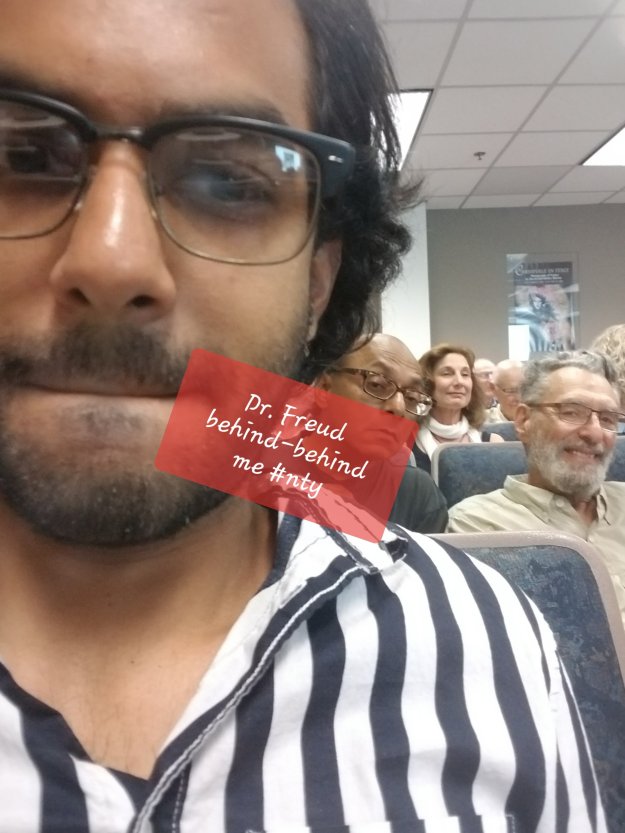Sureekin!

Wattur
Pad-
Lilliep!


Sureekin!

Wattur
Pad-
Lilliep!
Existentialism’s prime question is of what “it” means.
What is it? It could simply denote existentialism. This much might be somewhat circular. For if existentialism is concerned dearly with “meaning”, then it is foremost concerned with it’s own being.
Existential circularity need not be equated with the fallacious logical kind. Its status for all existent beings shall become the foregoing analysis’ next focus.

That it is is a necessary assumption for those who accept that minds exist, but equate it with either the central nervous system or its encapsulating body.
Much of the issue around physicalism vs. the question of minds’ existences may have less to do with the nature of reality than with what we mean by certain words. If anything and everything is physical, then “physical” is a unifying rather than polarizing or distinguishing concept; there is no contrast class to it (that is: nothing non-physical exists).
The project for physicalist cognitive scientists and philosophers of mind–those who, in short, believe that everything (including the mind) is physical–is, perhaps, simply to extend the language of physics to also accommodate “mind”. (And physicalism could well have to change, itself, in order to be able to do so!)
It may be convenient for a field like cognitive neuroscience especially to have a common framework for its studies of neural and cognitive (mental) systems, which have traditionally–a la Descartes and his successors–been regarded as more ontologically separate than they are, these days. Still, people’s mileages vary with respect to whether physicalism is the right unifying ideology for reality even aside from this possibility.
[The discussion from which this post arose took place on INTJforum, at: https://intjforum.com/topic/175287-if-physicalism-how-is-it-that-we-can-trust-our-cognitive-abilities/ ]

I’ve just begun reading through a paper of Tom Campbell’s which appeared in this video [link redacted]. In this post, though, I only aim to liken the popular simulation theory with Rene Descartes’ older “dream argument”. The former states that at least some of us are living in a virtual simulation. The latter runs as follows:
Premise 1 – If I know that I am awake, then I can eliminate as false the competing hypothesis that I am dreaming.
Premise 2 – I cannot eliminate the dreaming hypothesis.
Conclusion – I do not know if I am awake.
Elon Musk seems sympathetic toward the type of conclusion above. However, Musk’s interest has been not in dreams, but in whether a given person’s reality is provably virtual or actual. Descartes’ dream argument could be adapted in light of Musk’s challenge that we don’t know whether we’re living in virtual reality (VR):
P1′ – If I know that I exist in actual (non-virtual) reality, then I can eliminate as false the competing hypothesis that I exist in VR.
P2′ – I cannot eliminate the VR/simulation hypothesis.
C’ – I do not know if I exist in actual reality (as opposed to VR).
Testing the simulation hypothesis would minimally involve two steps. The first would be running participants through VR simulations. Following, the essential question for these subjects would become: “Did you know when your reality shifted between actual and virtual?” Naturally, experimenters could not give anything away until the end of such a study for it to be meaningful. If participants were consistently aware of when their reality changed kinds, then Musk’s simulation hypothesis would not apply: for their case, it would have to be ruled out as false. On the other hand, if subjects were generally unaware of their reality becoming actual or virtual, then Musk’s simulation hypothesis would hold true.
Campbell notwithstanding, this question presently remains unresolved.

This belief is rather easily explained away (though, sadly: not so easily disposed of, for the complacent offenders and “their” n=30 “subjects”!). It stems merely from a lack of correct understanding of differing methodologies, and their correspondences with prima facie differing practices.
Take my words, here. You are reading them. But are you reading me–my intent, my desires; and so on? If not, you are committing what I take to be the essential fallacy of the most literalizing scientists and analytic philosophers, who all fail to appreciate the proper way to arrive at another person’s meaning. For, if one does not understand what something means to the speaker–or, indeed, to any of their possibly-billions of listeners–one will forever be trapped and mired in his, her, or hir own “subjective” (in this case, impoverished as-such) meaning, distinct from and un-legitimized by one’s fellow beings in the world. Indeed: what a “meaning”!
For such a person, inter-subjectivity forever remains a mystery; coherent sociality at all willfully mystifies them, and what is left to mystify one will ultimately block one from becoming the best they can possibly be–whether “for themselves, or others”. (These quotes are necessary: for they hint at the absolute absurdity of the classical I-,-rather-than-thou formulation!)
In short, the one who instinctively dismisses hermeneutic work as “all subjective–and therefore useless” operates with a distinct lack of empathy: of caring for the immeasurable relativity of meaning among their “fellow” beings; of enriching subjectivity, generally; of truly understanding and connecting–and, henceforth, of caring for “him-, “her-, or “hir-self”.
Cling not to the dreaded “to the man!” “fallacy” quite so dearly, my friend–dialogical achievement is necessarily both art and science! Admit to a broader set of fallacies than have been so thoughtlessly inculcated: and tuck away that dirtied monologizing monocle, if only for the mere moment, good madams and sirs–